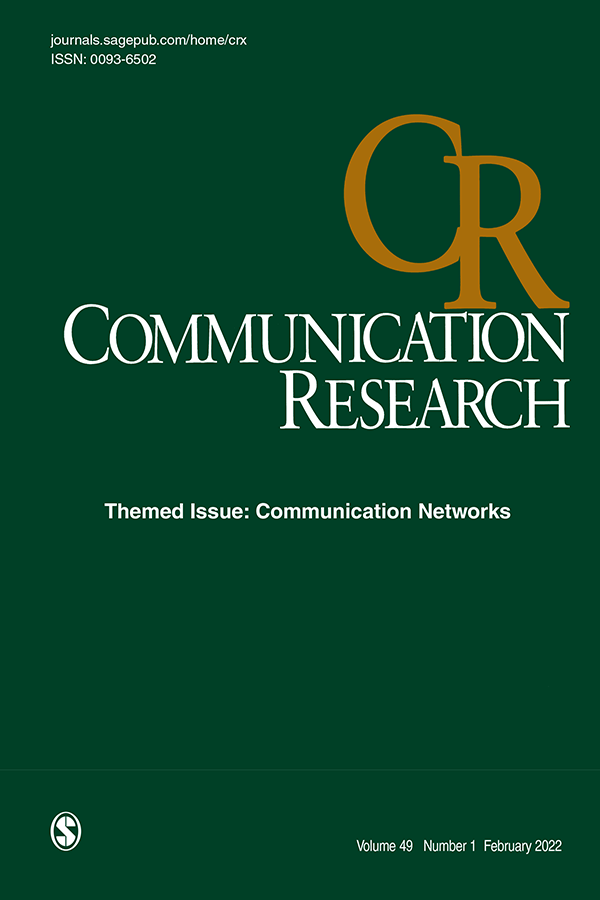厘清认知、情感和社会文化因素对风险信息规避的影响:元分析
IF 3.2
1区 文学
Q1 COMMUNICATION
引用次数: 0
摘要
风险信息回避(RIA)已成为人们处理海量信息时一种日益普遍的行为。鉴于其不利影响,人们开展了大量研究来探索其前因后果。尽管如此,研究结果却很分散,在某些情况下甚至不一致。因此,我们进行了一项荟萃分析,通过确定最相关的前因和调节因素,对目前的研究结果进行综合。在 "计划性风险信息规避 "框架的指导下,我们从认知、情感和社会文化三个维度对 11 个前因因素进行了研究。基于不同背景下的 52 篇文章,研究结果表明,信息超载(r = .30)、功效信念(r = -.11)、宿命论(r = .18)、信息不足(r = -.09)、焦虑(r = .26)、担忧(r = -.08)和信息规避规范(r = .50)是计划性风险信息规避的重要预测因素。此外,不确定性规避和信息类型被认为是调节因素。本文章由计算机程序翻译,如有差异,请以英文原文为准。
Disentangling the Effects of Cognitive, Affective, and Sociocultural Factors on Risk Information Avoidance: A Meta-Analysis
Risk information avoidance (RIA) has become an increasingly ubiquitous behavior for people to deal with massive volumes of information. Given its detrimental impact, abundant studies were conducted to explore its antecedents. Nevertheless, the results are scattered and, in some cases, inconsistent. We thereby conducted a meta-analysis to present a synthesis of the current findings by identifying the most relevant antecedents and moderators. Guided by the framework of Planned Risk Information Avoidance, we examined 11 antecedents along cognitive, emotional, and sociocultural dimensions. Based on 52 articles across various contexts, the results indicated that information overload ( r = .30), efficacy belief ( r = −.11), fatalism ( r = .18), information insufficiency ( r = −.09), anxiety ( r = .26), worry ( r = −.08) and information avoiding norms ( r = .50) were significant predictors of RIA. Furthermore, uncertainty avoidance and information type were identified as moderators.
求助全文
通过发布文献求助,成功后即可免费获取论文全文。
去求助
来源期刊

Communication Research
COMMUNICATION-
CiteScore
17.10
自引率
0.00%
发文量
20
期刊介绍:
Empirical research in communication began in the 20th century, and there are more researchers pursuing answers to communication questions today than at any other time. The editorial goal of Communication Research is to offer a special opportunity for reflection and change in the new millennium. To qualify for publication, research should, first, be explicitly tied to some form of communication; second, be theoretically driven with results that inform theory; third, use the most rigorous empirical methods; and fourth, be directly linked to the most important problems and issues facing humankind. Critieria do not privilege any particular context; indeed, we believe that the key problems facing humankind occur in close relationships, groups, organiations, and cultures.
 求助内容:
求助内容: 应助结果提醒方式:
应助结果提醒方式:


